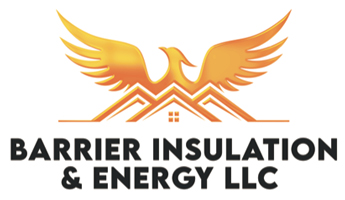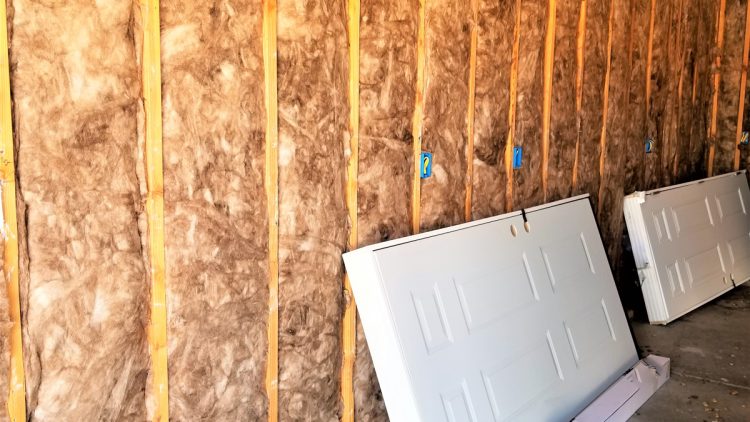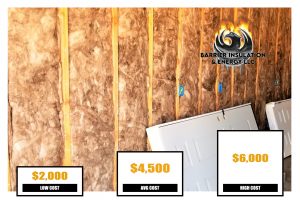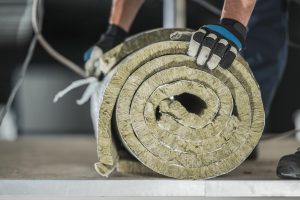Cost To Insulate Garage
The average cost to insulate a garage is $4,500, according to BobVila. Prices will typically range from $2,000-$6,000 in the U.S. Let’s look at a few factors below that could impact the total cost.
How Much Does It Cost To Insulate A Garage?
- Lowest Cost: $2,000.
- Average Cost: $4,500.
- Highest Cost: $6,000.
Garage Insulation Cost Factors
Garage Size
Size of the garage is undoubtedly the most influential factor when estimating the cost of an insulation installation. Typically, a bigger garage will call for more insulation. For instance, it will always cost more to insulate a 600-square-foot space than a 400-square-foot space.
A small, single car garage (average of 240 sq. ft.) will cost between $572-$6,600 for installation. Two-car garages can end up costing anywhere from $780-$9,000. Three-garages, meanwhile, can cost up to $15,000, depending on insulation type and material.
Type Of Insulation
There are five main types of insulation that homeowners will choose from, with many individuals opting to mix and match types in order to best fit the space. However, mixing and matching insulation types can result in a wide range of costs.
Batt insulation is always the cheapest option, costing anywhere from $0.65-$2 per sq. ft. This insulation type is usually used for both walls and ceilings. Rigid board insulation is known as the most expensive option, with costs ranging from $5.75-$15 per sq. ft.
Insulation Material
There are nine standard material types used for insulation. These types include fiberglass, cellulose, blue jean, sheep wool, wood fiber, rockwol, polyisocyanurate, cork and polystyrene. Fiberglass is one of the cheapest options, while cork and polystyrene are the most expensive. These materials can range all the way from $0.40-$15 per sq. ft.
Insulation R-Value
R-value is a term that many homeowners will not be familiar with, but it is important to know when installing insulation. R-value measures how resistant a material is to transferring warmth. Higher R-values will keep in heat more effectively.
The R-values of the different materials mentioned above range from 2.2-7. Spray foam has the highest R-value, but it will also come with the highest price tag.
Location
Location of the installation will influence the price, of course. Accessing some areas could require more time and effort, meaning additional labor hours will be tacked on. Garage doors are easy to access and insulate, which results in the lowest cost of any part of the garage installation.
Homeowners should expect to pay $500-$700 for the door installation. Floors will cost between $600-$900 to insulate, while ceilings cost a bit more, ranging from $260-$3,000. Walls typically cost the most to insulate, with costs expected between $780-$9,000.
Labor
Additional Cost Factors To Consider
- Energy audit.
- Soundproofing.
- Installing drywall.
- Weatherstripping.
- Mold remediation.
Cost Of Garage Insulation Types
Batt
Batt insulation is commonly referred to as “batts” or “rolls”. This type utilizes a flexible blanket-like insulation that is best suited for easily accessible areas. Batts and rolls can be used in non-standard areas, so the material will have to be cut to size.
The blankets come in high, medium and standard-density constructions, made from fiberglass, rock wool and other similar materials. Batt insulation can be fitted quite easily to the specific areas, but it may be hard to fit in unusual or hard-to-access areas.
- Average Cost: $0.65-$2.00 per sq. ft.
Blown-In
Blown in insulation is constructed of either fiberglass or cellulose that is blown into cavities in walls. This material is used to fill gaps in the insulation. Blown in insulation is ideal for attic spaces filled with nooks and crannies that are difficult to navigate through.
Cellulose blown in insulation is the most affordable option for home and business owners because it is made of recycled materials. Once it is installed, this insulation can last up to 25 years with very reliable performance overall.
- Average Cost: $1.65-$3.80 per sq. ft.
Foam Board
Foam board is very popular but be sure to check out the R value of any board you are using for maximum efficiency. You have to choose the right thickness of board to ensure it seals properly so it is effective against vapor. Depending on local building codes you may need board that is two to four inches thick.
- Average Cost: $2.40-$3.75 per sq. ft.
Spray Foam
Spray foam insulation is unique in that not only does it act as an insulation barrier, but expands into tiny gaps and cracks. This seals off many of your home’s air leaks, to keep you cooler in summer and warmer in winter. Open cell spray foam expands to an incredible 100 times its original volume in just seconds.
The primary components of spray foam are an organic chemical compound made from petroleum extracts and water. It is mixed and blown onto the inner wall and attic surfaces to seal the home and insulate it.
- Average Cost: $3.15-$7.50 per sq. ft.
Rigid Board
This can be an expensive choice for garage installations. In fact, rigid board is only recommended for garages that are waterproofed or completely finished since it’s not water-resistant. This is a good soundproofing material, though, and that’s why some homeowners choose this type.
- Average Cost: $5.75-$15.00 per sq. ft.
Reflective
- Average Cost: $700-$2,900 total.
Benefits Of Garage Insulation
If you often spend most of your time in the garage than what it takes to leave your car and go inside, then an insulated door, at the very least, needs to be on your shopping list. Modern garages often tend to serve as not only a parking space, but a craft room, rec room, workshop, and a showplace for your cars and much more.
Based on the time of year and your climate, you may want to heat or cool your garage to make it more comfortable. Your garage is one of the biggest rooms of your home, so why not maximize the use. If you cool or heat your garage, then you need an insulated garage door to minimize heat transmission through the door and keep your costs for cooling and heating lower. Whenever you combine the benefits of insulated garage doors with an organized garage, you will have endless possibilities.
Energy Efficiency Of An Insulated Garage Door
Insulated doors have a lot of benefits for attached garages. The insulation in the home reduces transmission of heat into your garage, and the insulation within the garage door limits that transmission even more. If your garage door isn’t insulated, then that is a barrier that keeps your cool or warm air in, and one less barrier to get money from your wallet.
Even if the garage door is insulated, if there aren’t proper door seals in place, then you may be costing yourself money. The most common seals are the threshold, bottom, and weather stripping. These insulating devices are inexpensive and simple and can provide comfort and save your money.
Less Noise In Your Home
If you have an attached garage and a living space above or next to the garage, then insulated garage doors will offer noise buffering. Just like insulation keeps in the cold out and the heat in, insulation also keeps the noise out as well. If you live next to a noisy neighborhood, then you should consider an insulated door.
Stronger Garage Doors
Your garage door strength will depend on the rigidity and strength of your construction material and how it was constructed. For instance, a single layer steel door isn’t as strong as an insulated door with triple or double layer construction.
The double layered garage door is normally made of galvanized steel with polyurethane or polystyrene insulation on the inside. Even though it is called a double layer, it actually contains a third layer of plastic or vinyl on the inside for cleaning ease and looks.
The triple layered garage door will sandwich insulation between 2 layers of wood or steel. The outer layer can be created to match your home, and the inside is smooth. The higher R-value and highest soundproofing come with this strong garage door option and it is the ultimate insulated garage door.
DIY Or Hire Professional For Garage Insulation?
Schedule Your Insulation Services Today!
Whether you are building a new house, or just need to remove the old insulation and install a newer more energy efficient option Barrier Insulation is Phoenix’s first choice in home and commercial insulation and solar services. We proudly provide the valley’s more comprehensive insulation service that helps you stay more comfortable and save on energy. Click here to schedule on our website, or just give us a call at 602-499-2922.



